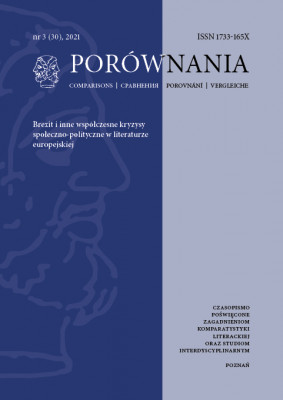Borderland Anxieties: Brexit, Upper Silesia and Irish Partitions in Recent Novels by Glenn Patterson and Szczepan Twardoch
Northern Ireland owes its existence to a partition of Ireland that took place a century ago. The knottiest problems involved in the UK’s recent divorce with the European Union can be traced back not only to the Belfast Agreement of 1998 but also to the establishment of a new border, and a new borderland, in the island of Ireland in 1922. The same year (1922) saw the coming into effect of a partition of Upper Silesia, which was triggered by the events and political decisions taken in 1921. The primary focus of this essay is on literary representations of crises and anxieties connected with the transformations of the geopolitical statuses of the two provinces (i.e. Northern Ireland and Upper Silesia) and selected historical, political and cultural parallels between them. Those anxieties are exemplified and illustrated by the leading characters of Glenn Patterson’s "Where Are We Now?" (2020) and Szczepan Twardoch’s "Pokora" (2020). Both novels yield to provincial readings that explore basic aporias of uprootedness, displacement, deterritorialization and identity crises, collectively identified here as borderland anxieties. In consequence, transnational and postnational perspectives that emerge from Patterson’s and Twardoch’s works count as proactive responses, encoded in literary texts, to current geopolitical crises in Europe.
| Article Title | Type | Size |
|---|---|---|
| 14 Drong | [pdf] | [162 KB] |
